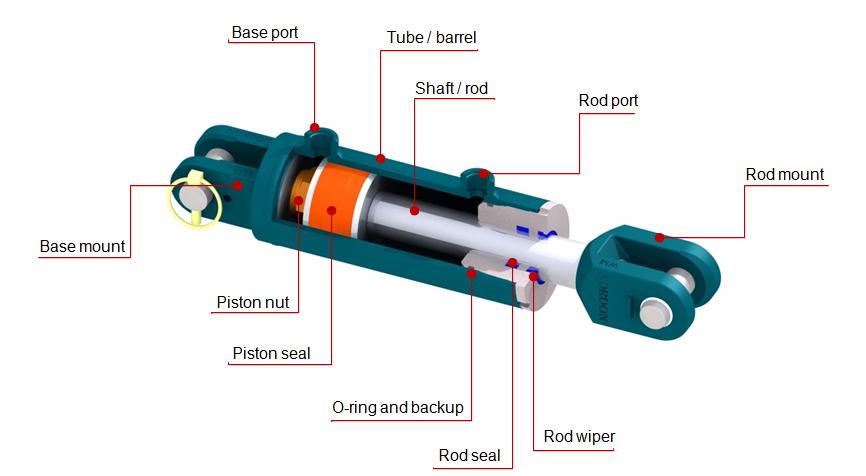The Hydraulics - Explained

Hydraulic
Hydraulic is a mechanism that is used to manipulate the power by using the fluid and its propertyhence we can use it in any application like push, pull, lift, hold, etc
This article describes the basics of hydraulic pressure and how to take advantage of fluid physics.
Basic Principles of Hydraulics
The three most important basic principles of hydraulics are:1.) The fluid is incompressible
2.) The fluid transfers pressure in all directions and is transmitted to all surfaces at right angles with equal force
3. ) Under pressurized liquid, follow the path with minimal resistance.
Hydraulic terms
Pressure: Usually the resistance to the flow created by the load. It is expressed in pounds per square inch or PSI.
Flow rate: This is the speed at which the fluid flows through the system. This is expressed in gallons or GPM per minute.
Displacement: This is the volume of liquid.
Basic components of the hydraulic system
Flow rate: This is the speed at which the fluid flows through the system. This is expressed in gallons or GPM per minute.
Displacement: This is the volume of liquid.
Basic components of the hydraulic system
The basic components of the hydraulic system are:
1.) Reservoir2.) Pump
3.) Valve
4.) Piston or motor
The reservoir holds the liquid. With oil from our garden tractor. The pump moves the oil throughout the system. The valve sends oil to various hydraulic cylinders or motors. The piston or engine is where the final work is done. The piston moves the load up and down and the motor rotates. All components are connected by hydraulic hoses or lines.
Working
The hydraulic system starts with a reservoir. This reservoir contains the oil used in the system. Oil is pumped from the reservoir to the hydraulic pump. From there the oil flows to the hydraulic control valve. When the valve is activated, oil will flow to and from the hydraulic cylinder. At the same time, the oil is returned from the cylinder to the reservoir, where the cycle repeats.
In the above diagram, we can see that when we halved the cross-section area , the force get double,
and in actuality, we applied low force but the application is done Double.


